- Home
- Dan Simmons
Olympos Page 11
Olympos Read online
Page 11
“Europa,” said Asteague/Che with no hint of impatience. “The icy, watery moon of Jupiter. Mahnmut’s home. And mine.”
“Of course,” said Hockenberry. He was blushing and knowing he was blushing made him blush again. “Sorry. Of course. I knew Mahnmut was from some moon out there. Sorry.”
“My title…although ’title’ is too formal and ostentatious a word, perhaps ’job function’ would be a more appropriate translation,” continued Asteague/Che, “is Prime Integrator for the Five Moons Consortium.”
Hockenberry bowed slightly, realizing that he was in the presence of a politician. Or at least a top bureaucrat. He had no clue as to what the other four moons might be named. He’d heard of Europa in his other life and he seemed to recall that they were finding a new Jovian moon every few weeks—or so it seemed—back at the end of the Twentieth Century, beginning of the Twenty-first—but the names escaped him. Maybe they hadn’t been named by the time he’d died, he couldn’t remember. Also, Hockenberry had always preferred Greek over Latin and thought that the solar system’s largest planet should have been called Zeus, not Jupiter…although in current circumstances that might be confusing.
“Allow me to reintroduce my colleagues,” said Asteague/Che.
The moravec’s voice had been reminding Hockenberry of someone and now he realized who—the movie actor James Mason.
“The tall gentleman to my right is General Beh bin Adee, commander of the Asteroid Belt contingent of combat moravecs.”
“Dr. Hockenberry,” said General Beh bin Adee. “A pleasure to meet you at last.” The tall figure did not offer his hand to shake, since he had no hand—only barbed pincers with a myriad of fine-motor manipulators.
Gentleman, thought Hockenberry. Rockvec. In the last eight months, he’d seen thousands of the soldier rockvecs on both the plains of Ilium and the surface of Mars around Olympos—always tall, about two meters as this one was, always black, as the general was, and always a mass of barbs, hooks, chitinous ridges, and sharp serrations. They obviously don’t breed them…or build them…for beauty in the Asteroid Belt, thought Hockenberry.
“My pleasure, General…Beh bin Adee,” he said aloud, and bowed slightly.
“To my left,” continued Prime Integrator Asteague/Che, “is Integrator Cho Li from the moon Callisto.”
“Welcome to Phobos, Dr. Hockenberry,” said Cho Li in a voice so soft it sounded absolutely feminine. Do moravecs have genders? wondered Hockenberry. He’d always thought of Mahnmut and Orphu as male robots—and there was no doubt about the testosteronic attitudes of the rockvec troopers. But these creations had distinct personalities, so why not genders?
“Integrator Cho Li,” repeated Hockenberry and bowed again. The Callistan—Callistoid? Callistonian?—was smaller than Asteague/Che but more massive and far less humanoid. Less humanoid even than the absent Mahnmut. What disconcerted Hockenberry a bit were the glimpses of what looked to be raw, pink flesh between panels of plastic and steel. If Quasimodo—the Hunchback of Notre Dame—had been assembled out of bits of flesh and used car parts, with boneless arms, a wandering multitude of eyes in assorted sizes, and a narrow maw that looked like a mail slit, and then miniaturized—he might have been a sibling of Integrator Cho Li. Because of the names, Hockenberry wondered if these Callistoidonal moravecs had been designed by the Chinese.
“Behind Cho Li is Suma IV,” said Asteague/Che in its, his, smooth, James Mason voice. “Suma IV is from the moon Ganymede.”
Suma IV was very human in height and proportion, but not so human in appearance. Somewhere over six feet tall, the Ganymedan had properly proportioned arms and legs, a waist, a flat chest, and the proper number of fingers—all sheathed in a fluid, grayish, oil-like coating that Hockenberry had once heard Mahnmut refer to as buckycarbon. But that had been on the hull of a hornet. Poured over a person…or a person-shaped moravec…the effect was disconcerting.
Even more disconcerting were this moravec’s oversized eyes with their hundreds upon hundreds of shining facets. Hockenberry had to wonder if Suma IV or his ilk had landed on Earth in his day…say at Roswell, New Mexico? Did Suma IV have some cousin on ice in Area 51?
No, he reminded himself, these creatures aren’t aliens. They’re robotic-organic entities that human beings designed and built and scattered in the solar system. Centuries and centuries after I died.
“How do you do, Suma IV,” said Hockenberry.
“A pleasure to make your acquaintance, Dr. Hockenberry,” said the tall Ganymedan moravec. No James-Masony or little-girl tones here…the shiny black figure with the glittering fly’s eyes had a voice that sounded like boys pelting a hollow boiler with cinders.
“May I introduce our last representative from the Consortium,” said Asteague/Che. “Retrograde Sinopessen from Amalthea.”
“Retrograde Sinopessen?” repeated Hockenberry, stifling a sudden urge to laugh until he wept. He wanted to go lie down, take a nap, and wake up in his study in the old white house near Indiana University.
“Retrograde Sinopessen, yes,” said Asteague/Che, nodding.
The thrice-identified moravec skittered forward on silver-spider legs. Hockenberry observed that Mr. Sinopessen was about the size of a Lionel train transformer, although much shinier in a polished-aluminum sort of way, and his eight legs were so thin as to be almost invisible. Eyes or diodes or tiny little lights glowed at various points on and in the box.
“A pleasure, Dr. Hockenberry,” said the shiny little box in a voice so deep it rivaled Orphu of Io’s near-subsonic rumble. “I’ve read all of your books and papers. All that we have in our archives, at least. They’re brilliant. It’s an honor to meet you in person.”
“Thank you,” Hockenberry said stupidly. He looked at the five moravecs, at the hundreds more working on other incomprehensible machines in the huge pressurized bubble, looked back at Asteague/Che, and said, “So now what?”
“Why don’t we sit down around that table and discuss this imminent expedition to Earth and your possible participation in it,” suggested the Europan Prime Integrator of the Five Moons Consortium.
“Sure,” said Thomas Hockenberry. “Why not?”
12
Helen was alone and unarmed when Menelaus finally cornered her.
The day after Paris’s funeral started bizarrely and grew only more bizarre as the day wore on. There was a smell of fear and apocalypse on the winter wind.
Early that morning, even as Hector was bearing his brother’s bones to their barrow, Helen was summoned by Andromache’s messenger. Hector’s wife and a female servant, a slave from the isle of Lesbos, her tongue torn out many years earlier, now sworn to serve the secret society once known as the Trojan Women, were holding wild-eyed Cassandra prisoner in Andromache’s secret apartments near the Scaean Gates.
“What’s this?” asked Helen as she came into the apartment. Cassandra did not know about this house. Cassandra was supposed to never know about this house. Now Priam’s daughter, the mad prophetess, sat sunk-shouldered on a wooden couch. The servant, whose slave name was Hypsipyle after Euneus’ famous mother by Jason, held a long-bladed knife in her tattooed hand.
“She knows,” said Andromache. Hector’s wife sounded tired, as if she had been awake all night. “She knows about Astyanax.”
“How?”
It was Cassandra who replied, without lifting her head. “I saw it in one of my trances.”
Helen sighed. There had been seven of them at the height of their conspiracy—Andromache, Hector’s wife, and her mother-in-law, Hecuba, Priam’s queen, had begun the planning. Then Theano had joined the group—the horseman Antenor’s wife, but also high priestess in Athena’s temple. Then Hecuba’s daughter, Laodice, was brought into the secret circle. Those four had trusted Helen with their secret and their purpose—to end the war, to save their husbands’ lives, to save their children’s lives, to save themselves from enslavement by the Achaeans.
Helen had been honored to become one of the sec
ret Trojan Women—no Trojan, she knew, but only the source of the true Trojan Women’s sorrows—and like Hecuba, Andromache, Theano, and Laodice, she had worked for years to find a third way—an end to the war with honor, but without such a terrible price.
They’d had no choice but to include Cassandra, Priam’s prettiest but maddest daughter, in their plotting. The young woman had been given the gift of second sight by Apollo, and they needed her visions if they were to plan and plot. Besides, Cassandra had already found them out in one of her mad trances—babbling already about the Trojan Women and their secret meetings in the vault beneath Athena’s temple—so they included her in order to silence her.
The seventh and final and oldest Trojan Woman was Herophile, “beloved of Hera,” the oldest and wisest sibyl and priestess of Apollo Smintheus. As a sibyl, Herophile often interpreted Cassandra’s wild dreams more accurately than Cassandra could.
So when Achilles had overthrown Agamemnon, the fleet-footed mankiller claiming that Pallas Athena herself had murdered his best friend, Patroclus, and then leading the Achaeans against the gods themselves in violent war, the Trojan Women had seen their chance. Excluding Cassandra from their planning—for the prophetess was too unstable in those final days before her prophesied fall of Troy—they had carried out the murder of Andromache’s nurse and that nurse’s child, Andromache then claiming—shouting, sobbing hysterically—that it had been Pallas Athena and the goddess Aphrodite who had slaughtered young Astyanax, Hector’s child.
Hector, like Achilles before him, had gone mad with grief and anger. The Trojan War ended. The War with the Gods began. The Achaeans and Trojans marched through the Hole to besiege Olympos with their new allies, the minor-gods, the moravecs.
And in that first day of bombing from the gods—before the moravecs protected Ilium with their forcefields—Hecuba had died. And her daughter Laodice. And Theano, Athena’s most beloved priestess.
Three of the seven Trojan Women dead that first day of the war they had brought about. Then hundreds of other warriors and civilians dear to them.
Now another? thought Helen, her heart sinking into some region of sorrow beneath sorrow. To Andromache, she asked, “Are you going to kill Cassandra?”
Hector’s wife turned her cold gaze in Helen’s direction. “No,” she said at last, “I’m going to show her Scamandrius, my Astyanax.”
Menelaus had no problem getting into the city in his clumsy disguise of boar-tusk helmet and lion-skin robe. He pushed in past the gate guards along with scores of other barbarians, Trojan allies all, after Paris’s funeral procession and just before the much-heralded arrival of the Amazon women.
It was still early. He avoided the area around Priam’s bombed-out palace since he knew that Hector and his captains would be there interring Paris’s bones and too many of those Trojan heroes could recognize the boar-tusk helmet or Diomedes’ lion skin. Wending his way past the bustling marketplace and through alleys, he came out by the small square in front of Paris’s palace—King Priam’s temporary quarters and still home to Helen. There were elite guards at the door, of course, and more on the walls and every terrace. Odysseus had once told him which set-back terrace was Helen’s, and Menelaus watched those billowing curtains with a terrible intensity, but his wife did not appear. There were two spearmen there in glinting bronze, which suggested that Helen was not at home this morning—she had never allowed bodyguards in her private apartments back in their more modest palace in Lacedaemon.
There was a wine and cheese shop across the square from Paris’s palace, rough tables set out into the sunny alley, and Menelaus broke his fast there, paying in the Trojan gold pieces he’d had the foresight to grab from Agamemnon’s trunk while he was dressing. He tarried there for hours—slipping more triangular coins to the shopkeeper to keep him happy during his tarrying—and listened to the gab and gossip from crowds in the square and townsfolk at adjoining benches.
“Is her ladyship in today?” one old crone asked another.
“Not since this morning. My Phoebe said that her chinks had gone and left at first light, yes, but not to honor her hubby’s bones bein’ put in all right and proper, no.”
“What then?” cackled the more toothless of the two old hags gumming their cheese. The old woman leaned closer as if ready to receive whispers, but the other old hag—as deaf as the first—fairly bellowed her response.
“Rumor has it that old priapic Priam insists that her Helenship—poxy foreign bitch that she is—marry his other son—not one of the army of Priam bastards roundabouts, you can’t throw a dog-puking rock without hitting a bastard of Priam’s, but that fat, stupid, rightful son, Deiphobus—and wed within forty-eight hours of Paris’s barbecue party.”
“Soon then.”
“Aye, soon. Today, perhaps. Deiphobus has been waiting his turn in line to boink the poxy doxy since the week Paris dragged her bumpy ass here—gods curse the day—so he’s probably well into the rites of Dionysos, if not of marriage, even as we speak, sister.”
The old hags cackled up bits of cheese and bread.
Menelaus slammed up from his table and strode the streets, carrying his spear in his left hand, his right hand on the hilt of his sword.
Deiphobus? Where does Deiphobus live?
It had been easier before the War with the Gods began. All of Priam’s unmarried sons and daughters—some in the fifties now—had lived in the huge palace in the center of the city—the Achaeans had carefully planned to carry the slaughter there first after breaching the Trojan walls—but that one lucky bomb on the first day of the new war had scattered the princes and their sisters to equally plush living quarters all over the huge city.
Thus, an hour after leaving the cheese shop, Menelaus was still striding the crowded streets when the Amazon Penthesilea and her dozen fighting women rode past while the crowds went wild.
Menelaus had to step back or be struck by the lead Amazon’s warhorse. Her greaved leg almost brushed his cloak. She never looked down or to the side.
Menelaus was struck so hard by Penthesilea’s beauty that he almost sat down then and there on the horse-dunged cobblestones. By Zeus, what frail beauty wrapped in such gorgeous, gleaming war armor! Those eyes! Menelaus—who’d never gone to war against or alongside the Amazon tribe—had never seen anything like it.
As if in a seer’s trance, he stumbled along behind the procession, following the crowds and the Amazons back to Paris’s palace. There the Amazon was greeted by Deiphobus, with no Helen in the retinue, so it seemed like the cheese hags had been wrong. At least about Helen’s current whereabouts.
Watching the door where Penthesilea had disappeared, Menelaus, like some lovestruck teenage shepherd boy, finally pulled himself away and began wandering the streets again. It was almost noon. He knew he had little time—Agamemnon had planned to start the uprising against Achilles’ rule by midday and have the battles fought by nightfall—and he recognized for the first time what a huge city Ilium was. What chance did he have of stumbling across Helen here in time to act? Almost none, he realized, since at first cry of battle amidst the Argive ranks, the great Scaean Gates would be closed and the guard on the walls doubled. Menelaus would be trapped.
He was headed for the Scaean Gates, filled with the triple nausea of failure, hatred, and love, almost running, half happy he had not found her and sick to his soul that he had not found and killed her, when he came upon a sort of riot near the gate.
He watched for a bit, seemingly unable to tear himself away from the spectacle, although the spectacle threatened to engulf him as it spiraled out of hand. Old women nearby babbled the tale.
It seemed the women of Troy had been somehow inspired by the mere arrival of Penthesilea and her egg-carton of Amazons—all sleeping now, presumably, on Priam’s softest couches—word had leaked out of the temporary palace of Penthesilea’s vow to kill Achilles—and Ajax, too, if she had the time, and any other Achaean captain who got in her way, since her Amazon eyes were full of
business. This had stirred something dormant but certainly not passive in the women of Troy (as opposed to the surviving few Trojan Women), and they had rushed out into the street, to the walls, onto the very battlements, where the confused guards had given way to the screaming wives and daughters and sisters and mothers.
Then it seemed that a woman named Hippodamia, not the well-known wife of Pirithous, but rather the wife of Tisiphonus—such an unimportant Trojan captain that Menelaus had never faced him on the field nor heard of him around the campfire—now this Hippodamia was whipping the women of Troy into a killing frenzy with her shouted oratory. Menelaus had paused to blend into the crowd but stayed to listen and watch.
“Sisters!” screamed Hippodamia, a thick-armed and heavy-hipped woman not without appeal. Her tied-back hair had come loose and vibrated around her shoulders as she shouted and gestured. “Why haven’t we been fighting alongside our men? Why have we wept about the fate of Ilium—wailed about the fate of our children—yet done nothing to change that fate? Are we so much weaker than the beardless boys of Troy who, in this past year, have gone out to die for their city? Are we not as supple and as serious as our sons?”
The crowd of women roared.
“We share food, light, air, and our beds with the men of our city,” shouted full-hipped Hippodamia, “why have we failed to share their fates in combat? Are we so weak?”
“No!” roared a thousand women of Troy from the walls.
“Is there anyone here, any woman, who has not lost a husband, a brother, a father, a son, a kinsman in this war with the Achaeans?”
“No!”

 The Terror
The Terror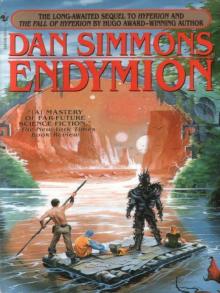 Endymion
Endymion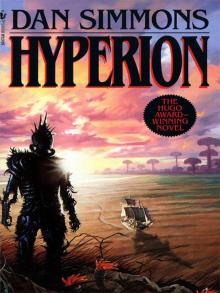 Hyperion
Hyperion The Crook Factory
The Crook Factory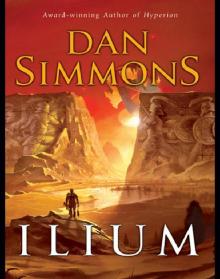 Ilium
Ilium Phases of Gravity
Phases of Gravity Hardcase
Hardcase Fires of Eden
Fires of Eden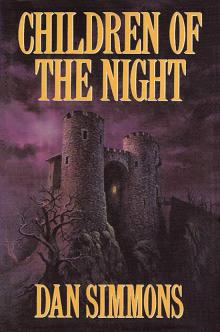 Children of the Night
Children of the Night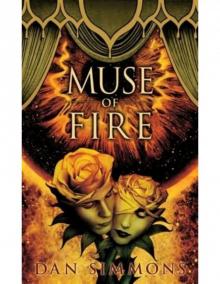 Muse of Fire
Muse of Fire Drood
Drood The Fifth Heart
The Fifth Heart Carrion Comfort
Carrion Comfort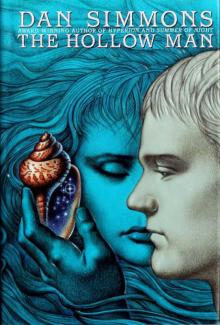 The Hollow Man
The Hollow Man Summer of Night
Summer of Night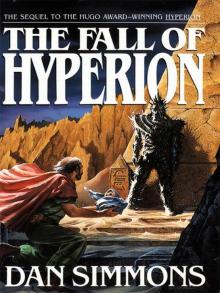 The Fall of Hyperion
The Fall of Hyperion Black Hills
Black Hills A Winter Haunting
A Winter Haunting Hard Freeze
Hard Freeze Prayers to Broken Stones
Prayers to Broken Stones Hard as Nails
Hard as Nails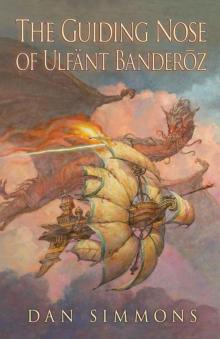 The Guiding Nose of Ulfant Banderoz
The Guiding Nose of Ulfant Banderoz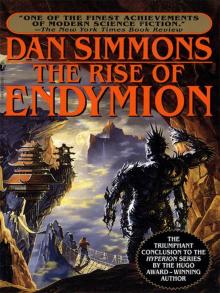 The Rise of Endymion
The Rise of Endymion Orphans of the Helix
Orphans of the Helix Lovedeath
Lovedeath Olympos
Olympos Darwin's Blade
Darwin's Blade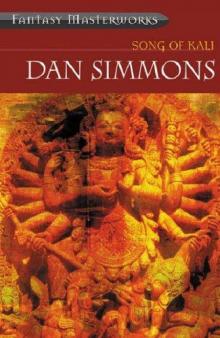 Song of Kali
Song of Kali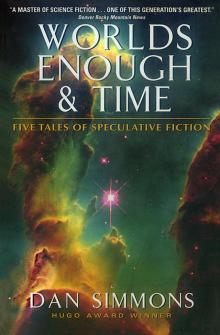 Worlds Enough & Time: Five Tales of Speculative Fiction
Worlds Enough & Time: Five Tales of Speculative Fiction The Abominable
The Abominable The Death of the Centaur
The Death of the Centaur Hard as Nails jk-3
Hard as Nails jk-3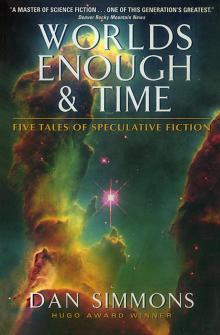 Worlds Enough & Time
Worlds Enough & Time Joe Kurtz Omnibus
Joe Kurtz Omnibus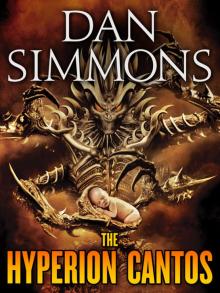 The Hyperion Cantos 4-Book Bundle
The Hyperion Cantos 4-Book Bundle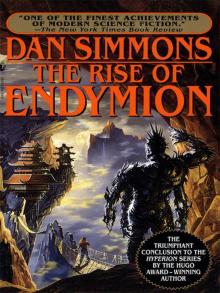 Rise of Endymion
Rise of Endymion Hard Freeze jk-2
Hard Freeze jk-2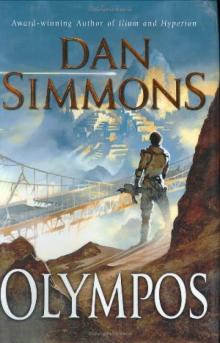 Olympos t-2
Olympos t-2 The Abominable: A Novel
The Abominable: A Novel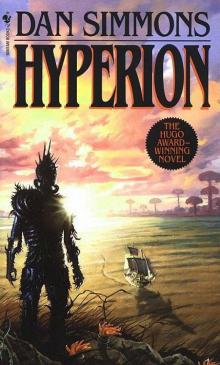 Hyperion h-1
Hyperion h-1 Remembering Siri
Remembering Siri Black Hills: A Novel
Black Hills: A Novel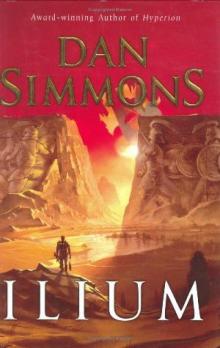 Ilium t-1
Ilium t-1 Hardcase jk-1
Hardcase jk-1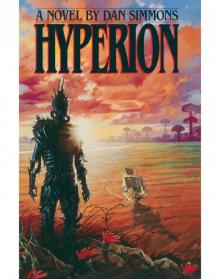 Hyperion 01 - Hyperion
Hyperion 01 - Hyperion